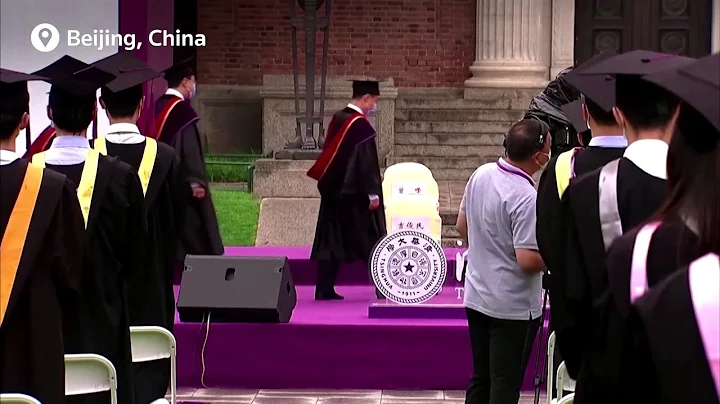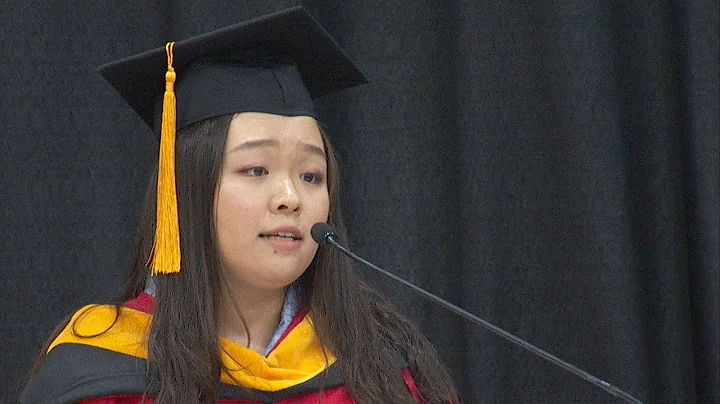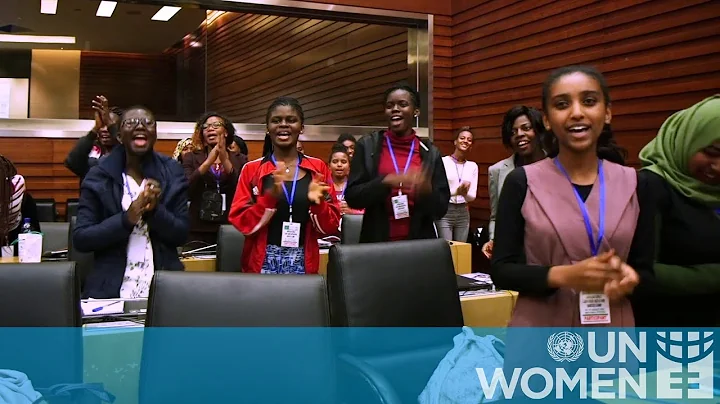On September 27, 1955, Beijing held a grand awarding ceremony. From marshal to warrant officer, a total of more than 600,000 cadres in the army obtained the rank of , warrant officer, or above. Due to the importance of the matter, when conferring titles in Beijing and other major military regions, relevant rules and regulations will be announced in advance to avoid accidents during the conferring ceremony. There are also specific regulations on the appearance of cadres. Since most of the cadres are male, there are One rule is that no beards are allowed. However, among the more than 600,000 cadres in the country, one person enjoys the privilege of keeping his long beard. Chairman Mao made an exception for him. Who is this person, and why does he enjoy special treatment that even the marshal does not?

This man's name is Jiang Weiping. His military rank is not among the highest, only lieutenant colonel level. However, he is the oldest lieutenant colonel since the founding of New China. He was 77 years old when he was awarded the title. Jiang Weiping's life is quite legendary. He successively joined the Qing Army, Beiyang Army, and the National Army. He only joined our Party and Army when he was 60 years old. He is known as the "Hua Tuo of the Army".
In 1878, Jiang Weiping was born into a peasant family in Fangshan, Hebei Province. At that time, the Qing Dynasty had not yet been destroyed, but it was already declining, and the lives of ordinary people became even more difficult. Because his family was too poor, Jiang Weiping went out to work since he was a child, serving as an apprentice or long-term laborer, earning a few meager wages to supplement his family's income. As for studying in a school, Jiang Weiping never even thought about what ordinary people could do in those troubled times. It's good if he doesn't starve. How can he have the spare money to send him to school?
Although he had no formal education, Jiang Weiping still had a strong sense of family and country. He felt that a man should make some contributions to the country and the people. When Jiang Weiping was in his early 20s, the Eight-Power Allied Forces invaded Beijing. This humiliation was unbearable for every bloody Chinese. In anger, Jiang Weiping resolutely surrendered to the army and joined the Qing army under Li Hongzhang..
However, after joining the army, Jiang Weiping was greatly disappointed by the corruption within the Qing army. It was corrupt, incompetent, and self-reliant. How could such an army save the building from collapse? Jiang Weiping realized that it was only a matter of time before the Qing Dynasty came to an end. Only by overthrowing feudal society could the country usher in new life and the people live a good life. Therefore, Jiang Weiping left the Qing Army and joined the Beiyang Army of Yuan Shikai and Duan Qirui .
From the Qing government to the Beiyang government , Jiang Weiping discovered that none of them sincerely considered the country and the people. The army became a tool for those in power to suppress each other and oppress the people. At that time, Jiang Weiping was doing quite well in the Beiyang Army. He became the deputy commander and his income was considerable, enough for him to live comfortably in that era. However, Jiang Weiping's original intention of joining the army was not for himself, so he eventually left the Beiyang Army and returned to his hometown in Hebei to study medicine and farm.

It was 1930. Jiang Weiping was already 52 years old. He was considered an old man at that time. Therefore, Jiang Weiping planned to be a farmer in his hometown and spend the rest of his life in an ordinary way. Although Jiang Weiping had no education, he was very eager to learn. He studied medicine as a teacher and worked hard on his own medical skills. He soon became famous in the local area and could treat all diseases that were not too complicated.
After the outbreak of the "Marco Bridge Incident" in 1937, an anti-Japanese upsurge was launched across the country. Jiang Weiping lived in seclusion in a mountain village and learned about this. He originally wanted to live an ordinary life, but the passion in his heart kept encouraging him. Jiang Weiping thought that he was already an old man. As long as he could kill a few more Japanese soldiers, even dying on the battlefield would be worthwhile. Therefore, Jiang Weiping closed his medical shop and joined the army again.
This time Jiang Weiping joined the Kuomintang army, the 3rd Division of the 29th Army under Song Zheyuan. Because he was older, Jiang Weiping was mainly responsible for logistics work and rarely went into battle to kill the enemy. However, Jiang Weiping was also very satisfied. As long as he could contribute to the anti-Japanese war, he did not care whether he could be promoted for meritorious service.
However, fate seemed to have been playing tricks on Jiang Weiping. Just when Jiang Weiping was ready to sacrifice for the anti-Japanese war at any time, his team was disbanded.Jiang Weiping was a little disheartened after joining the army three times but was disappointed. He just wanted to make some contribution to the country, but he never expected to do so. Does China really not have a reliable army? At this time, no one could give Jiang Weiping an answer. In desperation, Jiang Weiping had to return to his hometown again.
However, joining the army was not without gain. Jiang Weiping came into contact with Western medicine. After returning home, he opened a Western medicine store, combining advanced Western medicine with the traditional Chinese medicine he had learned before. The business was pretty good, enough to make a living.
A few years later, 60-year-old Jiang Weiping once again ushered in a turning point in his destiny. In February 1938, the 359th Brigade of the 120th Division of the Eighth Route Army advanced into H1 Pingxi H2, passing by Jiang Weiping's hometown. Jiang Weiping heard someone say that the Eighth Route Army was different from other armies. Not only did it not take advantage of the masses, but it also helped the poor. Jiang Weiping had served in the Qing Army, the Beiyang Army, and the National Army, and he was very familiar with the ethos of these armies, so he felt that maybe he should give it one last try.
Jiang Weiping closed the drugstore, packed all the medicinal materials in the store, took his adopted son, broke through the heavy blockade of the Japanese and puppet troops, and arrived at the Eighth Route Army's station without any danger. When Jiang Weiping said that he wanted to join the army, everyone present was in awe of the old man. You must know that the anti-Japanese situation was very serious at that time. Not everyone had the courage to go to the battlefield, let alone an old man in his sixties? Jiang Weiping could have been a doctor in his hometown, but he voluntarily gave up his comfortable life in order to fight against Japan. How can this spirit not be touching?
Considering Jiang Weiping's old age and his knowledge of medicine, the organization arranged for him to serve as the director of the National Salvation Association in the county and the director of the 359th Brigade Pharmaceutical Factory.

At first, everyone respected and feared Jiang Weiping, an old soldier, because Jiang Weiping always looked serious, had a big temper, and was unforgiving. If he was caught doing something wrong, he could He scolded you until you couldn't hold your head up, and Jiang Weiping was old enough to be the grandfather of many soldiers, so few people really dared to confront him. However, after a long time, the soldiers found that the old man was cold-hearted and warm-hearted. He never lost his temper, dealt with matters as they came, and was very patient with the wounded and patients. Moreover, Jiang Weiping was a warm-hearted person and often gave his allowance to the wounded. Buy nutritional supplements.
Although Jiang Weiping did not have the opportunity to fight on the battlefield due to his age, he also played an irreplaceable and important role in other fields. The war was difficult at that time, and countless soldiers were injured every day. In addition to knife wounds and gunshot wounds, fighting outside was also prone to digestive system or some infectious diseases. To make matters worse, in order to cause greater damage to our army, the insidious Japanese army blocked the local medicinal materials market. Not to mention finished medicines, even medicinal herbs were not available. This will undoubtedly delay the condition of a large number of wounded and give Our army caused serious losses.
Seeing this situation, Jiang Weiping ignored his advanced age and crossed the mountains to collect herbs in the nearby mountains. In addition, wherever Jiang Weiping followed the troops, he would go deep into the people to collect prescriptions. After repeated trials and comparisons, he formulated more than 40 kinds of pills, ointments, etc., which cured a large number of wounded people.
In 1941, Jiang Weiping's troops stationed in Mizhi County, Shaanxi Province. Due to the difficult conditions and the unaccustomed climate, many soldiers fell ill and were unable to fight at all. When medicines were in short supply, Jiang Weiping came up with a "homespun method." He took more than 40 soldiers to collect sodium sulfate and sodium sulfate, which solved a major problem. In addition, for sores and boils that were difficult to treat in the army at that time, Jiang Weiping made an ointment with lard and honey. At first, everyone was afraid to use it. Later, they found that this "local method" had miraculous effects. Since then, everyone has taken Jiang Weiping's medical skills by heart. .
While stationed in Mizhi, Jiang Weiping also rescued a woman. One day, Jiang Weiping went up the mountain to collect herbs as usual and met a maid from a landlord's family. After a brief conversation, Jiang Weiping learned that the maid was also from Hebei. She came to Shaanxi because she fled and was sold to a landlord to work. The owner beat and scolded her every day and suffered a lot of torture.
Jiang Weiping was old enough to be the girl's grandfather, and the two were fellow villagers. When he saw the little girl crying miserably, Jiang Weiping felt compassion and went to the landlord's house to say that he wanted to redeem the little girl.
At that time, Jiang Weiping was marching and fighting with the troops everywhere. He had little money on hand, only the allowance of 12 buckets of millet that he had just received. Perhaps because Jiang Weiping was old and wearing a military uniform, the landlord didn't give him much trouble. After accepting 12 buckets of millet, he handed over the maid to him.
Jiang Weiping brought the little girl back to the army and arranged her to work as a miscellaneous worker in the health team. A few years later, the girl married a deputy battalion commander of our army. It can be said that because of Jiang Weiping's kind deeds, the girl's life has been changed. Although he no longer practices medicine after joining the army, he still deserves the four words of "wonderful hands and benevolent heart".

In 1943, the Kuomintang reactionaries encircled the border areas of our party. In order to achieve self-sufficiency, the Shaanxi-Gansu-Ningxia Border Region carried out "large-scale production labor." The 65-year-old Jiang Weiping was appointed as the farm director of the 719th Group Farm in Kowloon Spring, Nanniwan. Despite his age, he is as energetic as the young people. Jiang Weiping led more than 100 people on the farm to open up more than 400 acres of land. Not only did he achieve self-sufficiency in food, he also handed over nearly 30,000 kilograms of public grain . Thanks to Jiang Weiping's efforts, the farm he was responsible for was rated as the first model farm, and he himself was awarded the honorary title of "Labor Hero" and "Model Worker" by the border area.
After the outbreak of the Liberation War, Jiang Weiping once again impressed everyone as the president of the First Branch of Bethune International Peace Hospital. In the Qingfengdian battle and Shijiazhuang battle , he led the medical staff to treat at least 1,200 wounded people and saved an unknown number of lives.
It is precisely because of Jiang Weiping's contribution that although he rarely fought head-on with the enemy, he still won the respect of everyone. Even Chairman Mao was very impressed by him.
When he was awarded the title in 1955, the 77-year-old Jiang Weiping shed tears of excitement when he learned that he was rated as lieutenant colonel. However, one problem bothered Jiang Weiping, and that was his beard. Jiang Weiping has had the habit of growing a beard for many years, but there are relevant regulations at the award ceremony that do not allow men to grow beards. Jiang Weiping was really reluctant to shave off his beard, so he asked his superiors for instructions if he could keep his beard. If not, he would shave it off himself.
Jiang Weiping has had a beard since the day he joined the army. Everyone knew it and understood his thoughts, so his superiors continued to report this situation upwards. Finally, this matter reached the ears of Chairman Mao. When he heard that it was Jiang Weiping, he was still very impressed by this 60-year-old man who participated. Chairman Mao smiled and said: "Since it is him, let's make a special case!" In this way, Jiang Weiping's beard was left.

In July 1964, Jiang Weiping died at the age of 86. Throughout his life, he experienced the Qing Army, the Beiyang Army, the National Army and our Army. Although he suffered many setbacks in the process, he never truly despaired and would stand up every time when the country was in danger. Jiang Weiping's behavior explains for us what "everyone is responsible for the rise and fall of a country." Although he did not have earth-shattering military exploits, he saved countless lives and paid tribute to the hero.





















